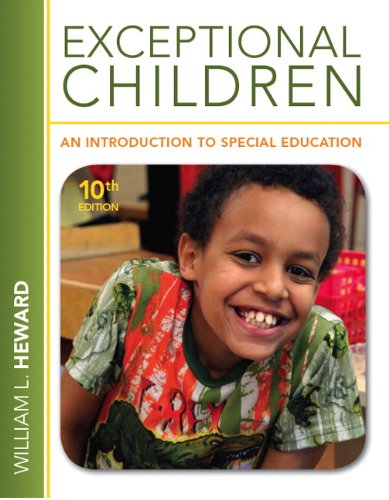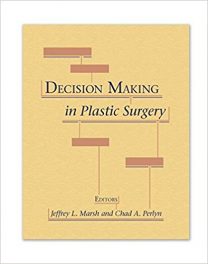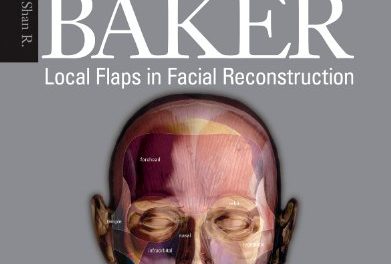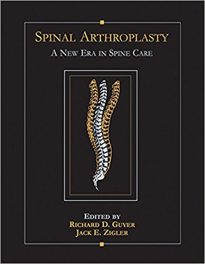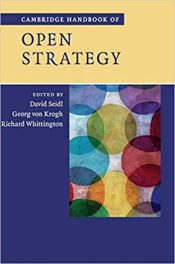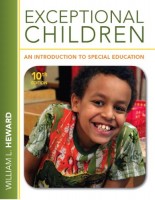 Author: William L. Heward, Ed.D., BCBA-D
Author: William L. Heward, Ed.D., BCBA-D
Publisher: Pearson – 562 pages
Book Review by: Sonu Chandiram
Students who receive the benefits of special education are not only those who have a variety of disabilities but also those who have a number of exceptional abilities. Their disabilities may relate to learning or they may be behavioral in nature. On the other end of the spectrum, students who have unusual abilities – the gifted and talented, for example – require special attention and specialized focus at an early age in order to nurture and develop those attributes.
This is the gist of the main message the author William L. Heward conveys in his Preface. He has instructed and helped teachers on the art and science of special education for about three decades, in order that they may become expert in handling exceptional children: both those with educational and behavioral challenges, as well as those who have superior abilities in certain areas.
This book is a guide for teachers on how to deal with students who have disabilities ranging from ADHD to autism to blindness and low vision; behavioral and communication disorders; deafness and hearing loss; health impairments; emotional, intellectual, and learning disabilities; physical disabilities and even traumatic brain injury.
On the positive side, it is also about nurturing and helping further develop the lucky among us: the gifted and talented ones.
The coverage of topics in this book of over 500 pages is broad, and this list below of its three main parts and 15 chapters will serve to provide you an overview so that you can choose to go to that topic that is most important to you at a given time.
- Foundations for Understanding Special Education
- The Purpose and Promise of Special Education
- Planning and Providing Special Education Services
- Collaborating with Parents and Families in a Culturally and Linguistically Diverse Society
- Educational Needs of Exceptional Students
- Intellectual Disabilities
- Learning Disabilities
- Emotional and Behavioral Disorders
- Autism Spectrum Disorders
- Communication Disorders
- Deafness and Hearing Loss
- Blindness and Low Vision
- Physical Disabilities, Health Impairments, and ADHD
- Low-Incidence Disabilities: Severe/Multiple Disabilities, Deaf-Blindness, and Traumatic Brain Injury
- Gifted and Talented
- Special Education Across the Lifespan
- Early Childhood Special Education
- Transitioning to Adulthood
Postscript
The author’s purpose in writing this comprehensive textbook on special education, is in his own words, “to describe the history, practices, advances, challenges, and opportunities that make up the complex and dynamic field of special education in as complete, clear, current, and accurate a manner as possible.”
Dr. Heward helps us understand the “why” of special education by asserting in his Prologue – A Personal View of Special Education – that this field of endeavor – which helps the unfortunate and further encourages the fortunate – is based on his 10 assumptions, namely:
- People with disabilities have a fundamental right to live and participate in the same settings and programs…as do people without disabilities.
- People with disabilities have the right to as much self-determination as they can achieve.
- Special education must expand and improve the effectiveness of its early identification and prevention efforts.
- Special education must do a better job of helping students with disabilities transform from school to adult life.
- Special education must continue to improve its cultural competence.
- School and family partnerships enhance both the meaningfulness and the effectiveness of special education.
- The work of special educators is most effective when supplemented by the knowledge and services of all of the disciplines in the helping professions.
- All students have the right to an effective education.
- Teachers must demand effectiveness from the curriculum materials and instructional tools they use.
- The future for people with disabilities holds great promise.
This book not only provides a wealth of information on the field of special education, but also a whole lot of inspiration that I believe is required of special educators in order for them to be successful and fulfilled in this noble helping profession, that provides constant challenges and difficulties to them.
William Lee Heward, Ed.D., BCBA-D, is Emeritus Professor in the College of Education and Human Ecology at Ohio State University, where he helped train special education teachers for 30 years. He has been a Senior Fulbright Scholar in Portugal, a Visiting Professor of Psychology at Keio University in Tokyo and the University of Sao Paolo, and a Visiting Scholar at the National Institute of Education in Singapore.
Among the many honors he has received are Ohio State University’s highest recognition of teaching excellence, the Alumni Association’s Distinguished Teaching Award, and the American Psychological Association’s Division 25 Fred SD. Keller Behavioral Education Award for lifetime achievements in education.
Dr. Heward’s research interests include “low-tech” methods for increasing the effectiveness of group instruction and adaptation of curriculum and instruction that promote the generalization and maintenance of learned knowledge and skills. Bill’s publications include seven other textbooks and more than 100 journal articles and book chapters.

